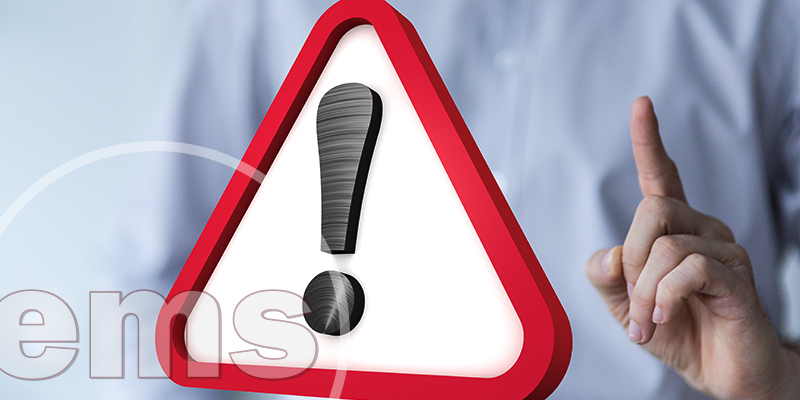As a homeowners association (HOA) board member, it is your duty to enforce the rules and regulations stated in the community’s governing documents. It’s important to be familiar with these stipulations so that you’re able to enforce rules fairly and effectively. Homeowners should also know that failure to follow will result in HOA violations and other possible consequences. To ensure proper HOA violation enforcement in your community, here’s what you need to know.
HOA Violation Enforcement: Why Is it Necessary?
Just like in our society, there should be a rule of law in your HOA community. Rules and regulations are necessary to have order and harmony in your community. While homeowners may have the right to do what they want on their property, their actions should not be detrimental or cause harm to the other community members.
Apart from having governing documents such as Covenants, Conditions, and Restrictions (CC&Rs) and bylaws, an HOA also has board members who ensure that the rules and regulations are being followed. They must deal with homeowners association violations fairly and even-handedly to ensure compliance from members of the community.
How to Enforce HOA Rules
Whether you’re a new board member getting ready for your new role, or a current board member struggling with non-compliance, it’s always beneficial to look for guidance on how to enforce HOA rules and how to handle HOA violations. Your approach to HOA violation enforcement can determine
So, how should HOA enforce rules in their community?
1. Check the Bylaws
The association’s CC&Rs and/or bylaws contain most — if not all — of the rules and regulations that should be enforced in the community. When homeowners join the community, they sign a contract that obligates them to follow all the stipulations.
Meanwhile, board members can also look to these governing documents to see reasonable enforcement policies for various violations. While some violations will justify a more severe consequence over others, it’s important to treat all violations with uniform enforcement.
Your bylaws will outline certain actions the HOA can take in response to violations.
Here are some examples of how board members may react:
- Fines are levied on the individual owner for breaking a rule or regulation (i.e. painting the home exterior with an unapproved color). Fines can be imposed singularly or by the day until the violation is corrected.
- Revoke the use of community common areas, such as the swimming pool or fitness center, until the violation has been corrected.
- Take direct action against the property owner. For example, removing an unapproved fence.
- Suit the homeowner should they continue to disregard their violation notices. This could be in small claims court to avoid high legal fees or by more severe methods if the violation is especially significant.
- Charge the homeowner for any additional costs (on top of the original fine) associated with the violation or actions taken by the board–such as those generated by removing the fence or fees for taking legal action.
- Place a lien on the homeowner’s property until all debt payments are complete.
The aforementioned HOA violation enforcement methods range in severity and some take place at different stages of the violation. For instance, a board can start with levying a fine and then progress to suing the owner or placing a lien on the property if the fines continue to go unpaid.
2. Declare a Violation
A board member shouldn’t impose a fine on a homeowner for violating the CC&Rs without first sending an HOA notice of violation. Communication is key to HOA violation enforcement; the board won’t receive payment unless the homeowner is aware that they need to pay. So, the HOA violation letter should properly explain everything to the homeowner.
In most circumstances, a simple letter outlining the violation, and the consequences for the violation will suffice. However, having your HOA management handle the violations could prevent any legal backfire should the association not handle the situation properly. Board members can also ask management for sample HOA warning letters to prevent any issues.
3. Hold a Hearing
 An association should hold a hearing to establish the legitimacy of the violation.
An association should hold a hearing to establish the legitimacy of the violation.
This also allows the homeowner to explain their side and why they made the violation. The hearing will typically follow after the homeowner has been notified about their violation.
When issuing the initial violation, the HOA board can establish a date and time to hold the hearing. This should give the homeowner enough notice. Should the homeowner not show up or an agreement cannot be made during the hearing, the board can consider taking the offender to a small claims court.
4. Take Leniency
Some associations implement a policy in which homeowners who receive their first violation can receive a warning. The first-offender policy is an effective HOA violation enforcement without making the situation out to be a big ordeal. Should the violation continue to go unaddressed, the HOA board can then impose a legitimate consequence, such as issuing a fine.
5. Ensure Legitimacy
When issuing a homeowner a citation for a violation, it is absolutely imperative to make sure that a violation actually occurred. The HOA board may not (and should not) fine a homeowner for breaking a rule that never existed in the first place. That’s why it’s crucial for board members to be familiar with the CC&Rs of their association, as well as any amendments.
Additionally, if the rule has arbitrary wording, it might be wise to correct the regulation before taking action against the homeowner. This is to avoid potential legal repercussions. If the rule is clear, and the homeowner clearly broke the rule, then the board can enforce the violation.
HOA Violation Enforcement: FAQS
HOA rules and regulations can involve many legalities. To avoid being on the wrong end of a legal suit, the association should try to cover all possible bases. Here are some Frequently Asked Questions that can further shape your HOA violation enforcement policies.
1. Can You Change Your HOA Rules and Regulations?
Yes, HOA board members can make changes to the community’s governing documents. However, there is usually a process to follow. Depending on your state, there may be additional provisions as well.
HOAs can also create new rules without having to amend the governing documents. Just make sure that there is a good reason for changing or amending your bylaws. For instance, rules that go against current local, state, and federal laws should be immediately changed. Or, some rules may need updating to keep up with the changing times.
Rules may only be changed after a majority board. You may also want to give notice to your community members to see if they are amenable to the changes. In addition, community members can also propose new rules to the board of directors during an HOA meeting.
2. Can HOA Board Members Get Sued?
 Homeowners can sue their HOA board for failure to properly enforce the rules and regulations. It could be a case of selective enforcement — where only select homeowners are getting fined for specific violations. It could also be due to housing discrimination — where a homeowner is denied a reasonable accommodation because it conflicts with the rules. For these reasons, HOA board members should always be fair and even-handed when sending violation letters.
Homeowners can sue their HOA board for failure to properly enforce the rules and regulations. It could be a case of selective enforcement — where only select homeowners are getting fined for specific violations. It could also be due to housing discrimination — where a homeowner is denied a reasonable accommodation because it conflicts with the rules. For these reasons, HOA board members should always be fair and even-handed when sending violation letters.
If selective enforcement is simply due to board members’ not having enough time, you might want to consider violation coordination services from EMS. Having a trusted third-party deal with HOA violation enforcement can remove a lot of the risk for board members. It also means that your community will have proper and effective HOA rule enforcement.
3. Can a Homeowners Association Fine You?
Regardless if you’re a board member or not, everyone is a member of your community. Thus, everyone has the obligation to follow the HOA’s rules and regulations. Being a board member doesn’t excuse you from violations. So, if you are found to have violated the CC&Rs, you are also subjected to possible fines and other consequences.
As a board member, though, you should try to set a good example for your community. If they see you violating the rules, you will lose your credibility and they will begin to mistrust your authority. Moreover, they may even choose to pursue legal action for failure to perform their duties and responsibilities as a board member.
Proper HOA Violation Enforcement Can Strengthen Your Community
There are plenty of cases where homeowners are unhappy with the rules and regulations of their community. Some might complain that the HOA board is too strict, or they are not enforcing the rules properly.
As an HOA board member, it is your job to explain to homeowners why these rules are necessary. By fostering camaraderie with your community members, you can increase HOA rule compliance. It also helps to have a fair and effective HOA violation enforcement policy. If homeowners see that you are working hard for the community, they will find it easier to comply.
If you need help coming up with a solid HOA violation enforcement strategy, please do not hesitate to fill out our online contact form or give us a call at (855) 238-8488.
RELATED ARTICLES:





